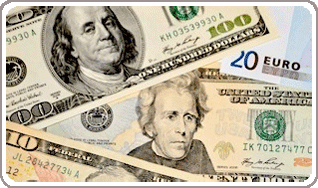

Credit Card Shopping on the Internet – Risk Reduction
Check the seller's reputation
1. You might feel safer dealing with companies you already know and trust. If you're not familiar with the name and reputation of a company-and especially if a seller has sent you an unsolicited e-mail message ("spam")-find out more before you buy. With a click you can check a company's reputation by contacting the Better Business Bureau at bbbonline.org. You can also research a company in Internet yellow pages or a government consumer protection agency like the your state’s district attorney’s office or the Attorney General. Additionally, an online search can find information on the seller such as other’s experiences and feedback.
2. With a physical store or a catalog, you know where to turn if you run into problems. But in cyberspace, all you may have is a web address. Check the ‘Contact Us’ section of the website for a street address and phone number. Be wary if the seller's only contact information is a post office box.
Reliable companies should advertise their physical business address and at least one phone number, either customer service or an order line. Call the phone number and ask questions to determine if the business is legitimate. If the company’s phone goes unanswered, this might be a sign to avoid doing business with the company.
3. Look for online merchants who are members of a seal-of-approval program that sets voluntary guidelines for privacy-related practices. TRUSTe (www.truste.org) and BBBonline (www.bbbonline.org) are two such programs.
4. Follow your gut instinct. If there are extraordinary claims that you question or the company’s prices seem unusually low, it may be too good to be true. Also if the website look like the merchant is an amateur and there are a lot of spelling or grammar errors, this may be a warning sign.
Credit Card Tips
The safest way to shop on the Internet is with a credit card. In the event something goes wrong, you are protected under the federal Fair Credit Billing Act. You have the right to dispute charges on your credit card, and you can withhold payments during a creditor investigation.
1. Consider getting a credit card to use just for online purchases. It will be easier for you to review your records. Also, you'll still be able to use your other credit cards if the security of your online card is in doubt or compromised.
2 .Use a credit card with low credit limit to minimize your financial exposure.
3. Make sure your credit card is a true credit card and not a debit card, a check card, or an ATM card. As with checks, a debit card exposes your bank account to thieves. Your checking account could be wiped out in minutes. Further, debit and ATM cards are not protected by federal law to the extent that credit cards are.
4. Using a prepaid credit card for internet use when buying from a website is much like paying with cash in a department store and is a great method for protecting your financial wellbeing. Most banks offer prepaid cards which are often promoted as gift cards but can used for your own purchases over the internet. The cards can also be purchased in many retail stores and some merchants even brand prepaid credit cards. WalMart offers it's Money Card which can be bought in the store and loaded with the amount of cash you want.
5. Use Virtual credit card numbers for your existing credit card. Some credit card issuers offer "virtual" credit cards for online transactions. You go to the issuer's website and follow the instructions for obtaining the number you may use in your next transaction. Even though the virtual number you give to the merchant is not the same as the one on your credit card, the charge will be authorized, and it will appear on your regular credit card bill. So, if there is a breach of security by one merchant, the person who obtains the number will not be able to use it to charge things to your account.
Note that these virtual credit card numbers are only temporary. They have a short lifespan or work only for one time use as a security precaution.
© 2011 Checkcredit.com. All rights reserved
